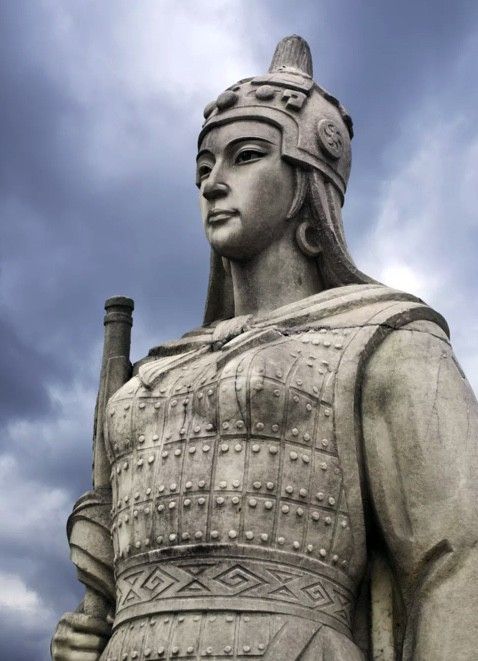Who was Fu Hao, and Why was she buried with over one hundred weapons?
Buckle up because I am taking you back to the Chinese Bronze Age. The Bronze age began around 2000 BCE with developments in weapons, communication, and infrastructure.

Buckle up because I am taking you back to the Chinese Bronze Age. The Bronze age began around 2000 BCE with developments in weapons, communication, and infrastructure. This allowed people to mass-produce many objects that changed history for the next thousands of years. Let’s visit the woman known for being the earliest female general and an overall powerful leader.
From the End
Before discussing what Fu Hao did during her life, it is important to analyze how she was buried after she died. In 1976, Fu Hao’s tomb was discovered in Anyang, Henan Province in China. The Chinese buried their military leader with many weapons and jewels to show her status and reverence. The exact numbers are found below:
- 468 bronze objects including 130 weapons, 23 bells, 27 knives, 4 mirrors, and 4 tigers or tiger heads
- 755 jade objects
- 63 stone objects
- 5 ivory objects
- 564 bone objects, including nearly 500 bone hairpins and over 20 bone arrowheads
- 11 pottery objects
- 6,900 pieces of cowry shell

After almost 3000 years, these objects persisted as a reminder of Fu Hao’s authority and military status. She was the first but certainly not the last female general buried in China, with many other decorated women preserved in tombs throughout history.
Her Life
Historians do not know much about the specifics of her life, but they do know she lived around 1040 BCE. Fu Hao was a consort to Emperor Wu Ding of the Shang dynasty. When she was young, she received a military education, including a 3-year-tour of the countryside with her husband. This allowed Fu Hao to recognize the land and learn battle strategies. After more training, her husband granted her a seal to start her military campaign.
Fu Hao headed her troops and participated in treating the injured. She tried to keep up morale and instill respect in her soldiers. She led many battles against the Qiang Fang and Tu Fang tribes, earning military excellence and glory in her own right. Notably, she fought for victory against the Ba people, and that battle was the earliest recording of an ambush on a huge scale in Chinese history.

Fu Hao was the subject of many early Chinese writings detailing her military experience, personal life, and religious practices as a priestess. After a serious battle, Fu Hao fell ill from exhaustion. She also grieved the loss of her only son Xiao Yi, who died suddenly. Fu Hao passed shortly after her son.
As an excellent symbol of military prestige victory, Fu Hao led an adventurous and exciting life. The Chinese people held her in as much regard as the Emperor of the time. I wish I knew more about her, but she sounds like a fierce woman who was great at what she did.